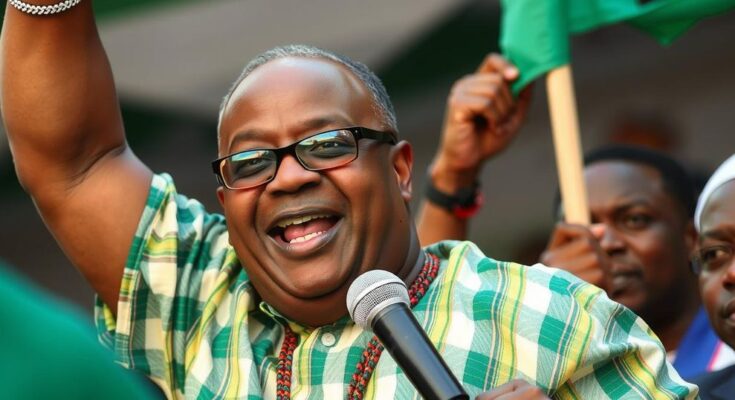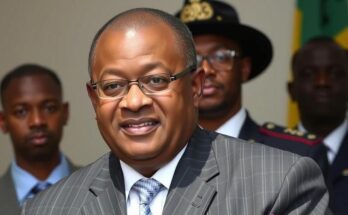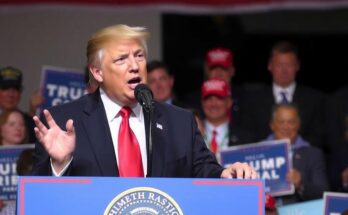Former president John Drahami Mahama won a significant election victory in Ghana, leading the opposition NDC to overcome the ruling NPP amid public dissatisfaction with economic management. Following Vice President Bawumia’s concession, Mahama’s supporters celebrated his return after previous electoral defeats. The election was heavily influenced by Ghana’s economic challenges and is expected to lead to significant reforms in governance.
On Sunday, Ghana’s former president John Drahami Mahama achieved a significant electoral victory, marking a notable comeback as he led the opposition National Democratic Congress (NDC) to triumph in the presidential election. The ruling New Patriotic Party (NPP), represented by Vice President Mahamudu Bawumia, conceded defeat after voters expressed dissatisfaction with the government’s management of a tough economic landscape, which has been characterized by high inflation and significant public debt. This election results in Mahama reclaiming the presidency after unsuccessful attempts in 2016 and 2020.
Following the election, Vice President Bawumia acknowledged the electorate’s desire for change, highlighting that he could not overcome the widespread frustration regarding escalating living costs. He stated, “Former president Mahama has won the presidential election decisively,” underscoring the NPP’s acceptance of the electoral outcome. Along with the presidential win, the NDC also secured a majority in the parliamentary elections, enabling Mahama to initiate reforms aimed at addressing the economic crisis faced by the nation.
Celebrations erupted in the capital, Accra, where supporters rallied in support of Mahama, showcasing their enthusiasm with flags and jubilant expressions of faith in his leadership. Leyla Alhassan, a trader and Mahama supporter, expressed, “They said he can’t come back, and he has come. The nation builder is back to build our Ghana for us.” Although Mahama has yet to make a public statement following his victory, he did acknowledge Bawumia’s congratulatory message via social media.
Ghana’s economy has been central to this election, with the nation undergoing significant fiscal challenges, including currency devaluation and a debt default that warranted a $3 billion International Monetary Fund (IMF) bailout. Prior to the election, internal reviews from the NDC indicated that Mahama garnered 56.3 percent of the vote against Bawumia’s 41.3 percent. Electoral authorities expect to declare the official results by Tuesday, as unofficial figures continue to emerge from polling stations across the country.
Historically, Ghana has maintained a balanced democratic framework, with the NPP and NDC alternating in power since the re-establishment of multi-party politics in 1992. The NPP aimed for an unprecedented third consecutive term under Bawumia’s leadership, termed as “Break the 8,” but faced criticism regarding President Nana Akufo-Addo’s economic management. Despite a decline in inflation from over 50 percent to 23 percent, economic issues remained pivotal in the electoral discourse, ultimately facilitating Mahama’s return to office.
Ghana’s political landscape has been shaped by the persistent rivalry between the two main political parties, the New Patriotic Party (NPP) and the National Democratic Congress (NDC). The country has experienced fluctuations in economic stability, particularly due to high inflation rates and significant public debt. Mahama’s previous presidency from 2012 to 2017 was marred by economic criticism and power supply issues, establishing a challenging electoral legacy. The recent election reflects the electorate’s response to ongoing economic hardships, and the outcomes signal a desire for change and reform within the government.
In summary, John Drahami Mahama’s return to the presidency signifies a pivotal moment in Ghanaian politics, catalyzed by widespread public dissatisfaction with economic conditions and government performance under the NPP. His electoral victory, accepted with humility by the defeated Vice President Bawumia, showcases the electorate’s demand for change. This transition is not merely a political shift but underscores the pressing need for effective economic strategies to restore stability and growth in Ghana.
Original Source: www.wfxg.com




